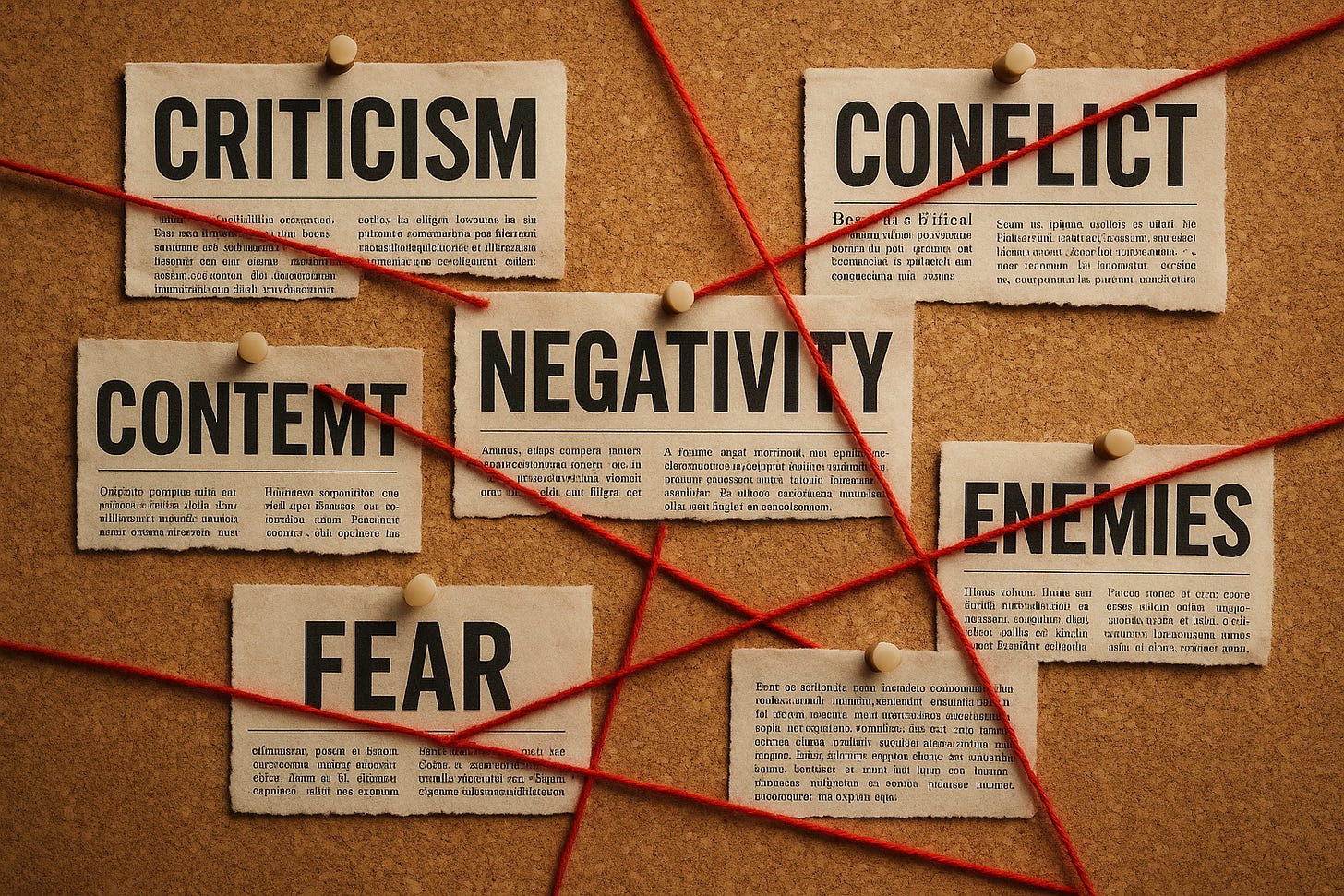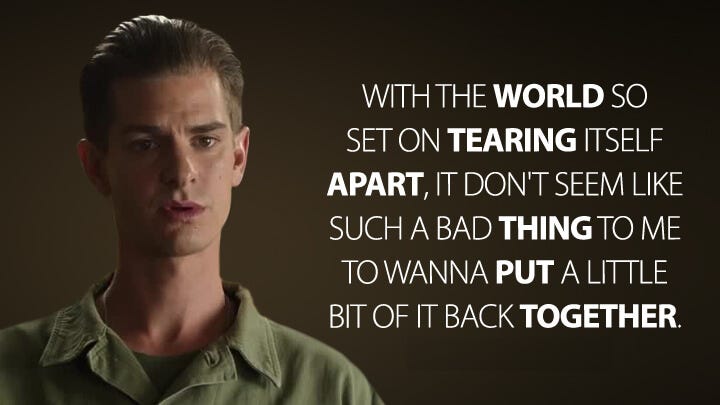What We Choose to See
There is no shortage of criticism and contempt. But there is also moral courage, and it’s closer than you think.
In Clallam County, we face a choice: to focus on the negative or to seek out and celebrate the good. While some platforms emphasize criticism and conflict, Clallam County Solutions aims to highlight the positive actions and solutions within our community. By focusing on moral beauty—acts of kindness, generosity, and courage—we can foster a more connected and compassionate community.
This approach aligns with the mission of Clallam County Solutions: to replace polarization and cynicism with constructive dialogue and shared understanding. By sharing stories of local individuals and organizations making a difference, we aim to inspire others to engage in positive actions.
In a culture saturated with negativity, choosing to focus on goodness is a form of resistance. By witnessing and emulating moral courage, we not only improve our community but also transform ourselves in the process.
Let’s choose what elevates.
This piece draws inspiration from a powerful essay by guest writer Arthur C. Brooks, originally published in The Atlantic. Brooks’ work has informed other reflections on this site as well. You can read the original article here:
The Beauty Moral Courage Creates
The Uplifting Power of Moral Beauty
Imagine those moments when someone's unexpected act of kindness stopped you in your tracks—perhaps it was a neighbor quietly helping another through tough times, a stranger's generous act of compassion, or someone bravely standing up for justice despite the personal cost. These instances, though sometimes fleeting, contain profound emotional power. Author Arthur C Brooks calls this phenomenon "moral beauty"—a remarkable human capacity encompassing charity, kindness, forgiveness, courage, and self-sacrifice.
Witnessing moral beauty triggers a profound response within us, known to psychologists as "moral elevation." It’s the warm, uplifting feeling that often arises in your chest, moving you deeply and compelling you toward a renewed sense of purpose and optimism. As social psychologist Jonathan Haidt describes, moral elevation isn't merely emotional—it is neurologically real, activating specific parts of our brain that influence empathy, inspiration, and our capacity for joy.
As a connoisseur of film, scenes from Rudy, Schindler’s List, Invictus, Les Misérables, and Hacksaw Ridge come to mind.
This emotional uplift isn't momentary; it tends to inspire long-lasting changes in behavior. When we see someone perform an act of moral courage or genuine compassion, it sparks a desire within us to mirror that goodness in our own lives. Whether it’s a quiet act of forgiveness toward someone who has wronged us, volunteering our time to support community initiatives, or simply showing generosity without expecting anything in return, these actions collectively enrich our own lives as well as those around us.
The beauty in moral courage lies not just in its altruism, but in its transformative impact. It encourages us to become better versions of ourselves, fosters deeper connections within our communities, and increases collective happiness and well-being. In times marked by division or despair, highlighting and celebrating moral beauty serves as a vital reminder of our shared humanity and potential for goodness.
Moral Beauty Across Cultures and Traditions
The concept of moral beauty is not new, nor is it exclusive to a single culture or tradition. In fact, it is deeply embedded in many of the world's great spiritual and philosophical teachings. Christianity profoundly captures this idea with the well-known scripture, “Greater love hath no man than this, that a man lay down his life for his friends.” Islam emphasizes moral beauty through charity, which is one of its Five Pillars, guiding believers to consistently support and uplift their communities through acts of generosity. Similarly, Hinduism's principle of Dharma directs followers toward honesty, avoiding harm, and practicing generosity as essential aspects of a righteous life.
Arthur C. Brooks underscores that such acts of moral courage resonate across all cultures precisely because they speak to something profoundly universal within us—a shared aspiration toward kindness, altruism, and community well-being. Regardless of our background or belief system, we are collectively moved by actions that exemplify moral beauty, drawing us closer to each other and inspiring us toward better versions of ourselves.
The Extraordinary Impact of Moral Beauty
While all acts of moral beauty are commendable, some resonate with exceptional power—the selfless actions we take for complete strangers or even those we may consider adversaries. Helping someone we know and care for feels natural, but extending compassion, kindness, and generosity toward someone who cannot reciprocate or might not even deserve it, carries a profound emotional impact. Arthur C. Brooks notes, “Such courage and self-sacrifice toward kin can certainly be inspiring, but moral beauty is most striking in acts of goodness toward others with whom one does not have obvious ties.”
Forgiving someone who seems undeserving or extending aid without expecting personal benefit dramatically highlights the selfless heart of moral beauty. These moments contradict our natural instincts toward self-interest, and in doing so, they ignite powerful psychological responses within us. Witnessing such profound generosity and courage can trigger deep, transformative reflections, encouraging us to reconsider our values and prompting meaningful changes in our behavior and outlook toward others.
These extraordinary acts remind us of the boundless potential for goodness within humanity, illuminating a clear pathway toward deeper empathy, community cohesion, and lasting personal fulfillment.
Jean Valjean experiences undeserved forgiveness. A life forever changed. Les Misérables
The Science Behind Moral Elevation
Psychologist Rhett Diessner and his colleagues have extensively studied the phenomenon of moral elevation, confirming its tangible psychological and emotional effects. Their research illustrates that witnessing acts of moral beauty consistently evokes feelings of warmth, uplift, and profound connectedness. These emotions are not superficial; they significantly influence our happiness levels, strengthen our moral intentions, and lead directly to prosocial behaviors—actions that benefit others without expecting anything in return.
Further, selfless actions contribute deeply to our sense of life’s meaning, especially during challenging periods when we might feel insignificant or experience personal loss. In such times, engaging in acts of kindness and altruism provides a powerful counterbalance, restoring our purpose and reaffirming our place in a caring community. This scientific understanding reinforces the transformative potential of moral beauty, showing clearly how it enriches both individual lives and the broader social fabric.
Inviting Moral Beauty into Daily Life
1. Surround Yourself with Moral Models
The company you keep profoundly shapes your emotional and moral environment. Surround yourself with people who exemplify kindness, generosity, and moral integrity. Conversely, limit your interactions with those who frequently engage in negativity, cynicism, or gossip. Choosing positive influences not only uplifts your mood but also encourages you to emulate admirable behaviors and virtues.
2. Make Service a Pastime
Consider replacing passive leisure activities with meaningful acts of volunteerism and community service. Individuals who dedicate their free time to serving others consistently report experiencing greater joy, purpose, and satisfaction in life. Service can become a cherished lifestyle, offering sustained emotional fulfillment and a deepened sense of personal significance.

3. Practice Gratitude
Humans are naturally predisposed toward a negativity bias, often focusing more on threats and problems than on kindness and positive experiences. Practicing daily gratitude can help shift your attention toward moral beauty and the good present in others. Regularly reflecting on things you're grateful for fosters a healthier, more positive mindset and strengthens your awareness of the moral beauty surrounding you.
The Competing Pull of Negativity
Platforms focused on criticism, conflict, and negativity are increasingly pervasive, subtly influencing how we see ourselves and each other. Constant exposure to such content can reinforce divisive thinking, heighten distrust, and foster a community climate filled with suspicion and resentment. This type of content, whether explicitly critical or subtly antagonistic, chips away at our collective optimism and erodes our sensitivity to genuine kindness and generosity.

Similarly, the growing fascination with true crime podcasts, television series, and documentaries reflects society’s broader attraction to darker narratives. These stories, can distort perceptions of reality, amplify fears, and ultimately diminish our ability to recognize and appreciate acts of moral beauty.
Overconsumption of negativity, whether through criticism-focused media or sensationalized crime stories, can leave us feeling anxious, desensitized, or depressed. Actively choosing to seek out and celebrate moral beauty counters this negativity, strengthens emotional resilience, cultivates optimism, and deepens our connections within the community.
Conclusion: Choose What Elevates
You are naturally drawn to moral beauty—nurture that instinct. In a culture increasingly saturated with negativity and conflict, choosing to focus on goodness is a powerful form of resistance. Actively seek out and celebrate acts of moral courage, kindness, and generosity. By witnessing and emulating these actions, you'll not only help make the world a better place—you'll profoundly transform your own life and inspire those around you.
Here in Clallam County, we don’t have to look far to find examples of people who lead with generosity, who serve their neighbors, and who approach hard problems with hope instead of hostility. Clallam County Solutions exists to highlight these people, these efforts, and these mindsets—not to deny our local challenges, but to frame them differently.
Focusing on moral beauty doesn’t mean putting our heads in the sand. It means facing the issues around us from a place of compassion rather than contempt, of gratitude rather than grievance. We believe that our community’s hardest problems deserve our best thinking and our deepest humanity. Let’s keep choosing what elevates—and let’s keep choosing to do it together.
How does this article hit you? I would love it if you would consider sharing a moment that you witnessed Moral Beauty in our community. Please leave it in the comments below, so we can continue to share the things that make our community a special place.
Keep an eye out for our upcoming deep dive into Habitat for Humanity!
Active dialogue and engagement with our readers is crucial. Writers on this platform are encouraged—and expected—to revisit their articles regularly, responding thoughtfully to readers’ questions and concerns.
We want conversations, not shouting matches. Therefore, comments will be reviewed regularly and are expected to adhere to these foundational guidelines:
Stay on Topic: Comments must relate directly to the article.
Respectfulness: Every comment should demonstrate respect toward authors, website management, and fellow commenters. Bullying, name-calling, or disrespectful behaviors will not be tolerated.
Constructive Dialogue: Political grandstanding is unwelcome here. While some discussions naturally involve political elements, the goal is to enhance understanding, clarify perspectives, and contribute constructively.
No Personal Attacks: As Theodore Roosevelt wisely said, it's the person who is "actually in the arena" who deserves our respect. Criticism is welcome, but personal attacks are not.
Transparency: Any new guidelines needed as this platform evolves will prioritize civility, decency, and productive dialogue.





Thank you Danny, not just for this inspiring post but for your entire webiste that I'm slowly making my way through - and learning a lot. What a terrific place we live in, thanks to people like you - and so many others toiling away to spin the web of community.
Great perspective. I am likely one of the more public cynics on social media and through my comments and presentations at City Council, PABA, PAAR, Kiwanis, and Coffee with Colleen. I want a vibrant future for PA and sincerely enjoy volunteering with many organizations. My primary concern is that many people don't understand the struggles facing Port Angeles. They don't realize how much we have underperformed in areas such as individual wage growth or overall financial growth. They don't see that school enrollment is down 30% in the last 20 years. They don't realize our heavy dependence on the government will never be the path to prosperity. Many have become immune to the news of another business leaving our community, or the vacant commercial and residential blighted properties. I really don't want to be the "Debbie Downer" of Port Angeles, but I feel if more people saw the data, they would be more inspired to get involved. That involvement could simply be voting, attending a City Council or Elevate PA meeting, or volunteering for so many of our wonderful events and non profits. Please watch my presentation here: https://youtu.be/3H-t9Nlll-w?si=-7yEHa1tXSYyTefK